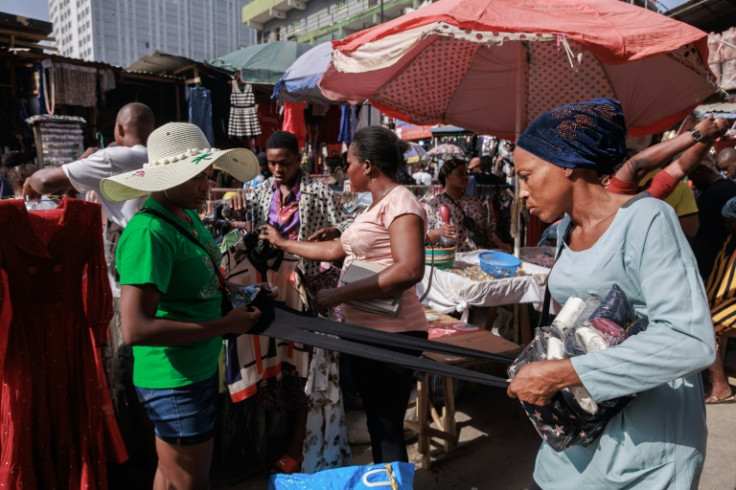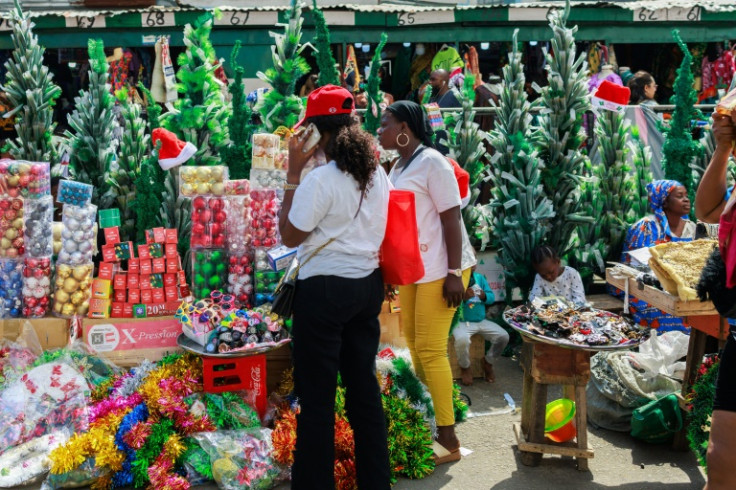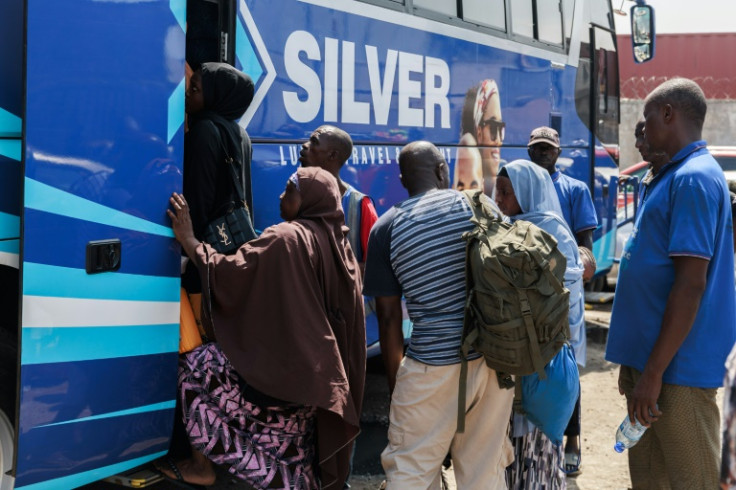Nigeria Economic Crisis Dampens Christmas Spirit

Lining up, they receive some rice, dried beans and other basic foodstuffs, whose soaring prices have left millions in Nigeria facing a bleak Christmas.
The temporary food distribution in the courtyard of the Church of the Assumption in the economic capital, Lagos, has drawn a big crowd -- some have travelled far.
Christana Adebaya, 58, arrived at 6:00 am after a more than two-hour bus ride.
It's hard waiting for hours in the blazing sun but she has come to get rice for Christmas and New Year because food prices are too expensive right now, she told AFP.
As well as rice and beans, the food donations, organised by Catholic associations, include tomato concentrate, cooking oil and a 500-naira note ($0.60).
"We do not need a prophet to tell us that the rate of poverty has increased by the day," Reverend Francis Ike, wearing an immaculate white cassock and sunglasses, said.
"People are finding it very difficult, even the rich people complain."
Last year, 1,300 people benefited from the Christmas food handout.
But Dominic Ekle, president of one of the associations taking part, said he had anticipated more people this year.
Even so, he did expected this many, he said.
President Bola Ahmed Tinubu, who came to power at the helm of Africa's largest economy in May, launched an ambitious reform agenda aimed at attracting investment and addressing a cost-of-living crisis.
He ended a costly fuel subsidy and lifted restrictions on the naira currency.
Since then, fuel prices have tripled, the naira has lost 41 percent of its value against the dollar on the official currency market and, according to the World Bank, food prices have surged more than 31 percent.
Overall inflation exceeded 28 percent in November.
Poverty in Africa's most populous nation rose from 40 percent in 2018 to 46 percent this year, the World Bank said.
The lives of some 104 million people -- or nearly half the population -- are blighted by poverty.
At the Obalende market in Lagos, trade has slowed. "We don't know that Christmas is outside," fish seller Rifat Arigege, 41, said.
Melody Samuel, 28, said she would not buy rice -- the star ingredient in the season's celebrations -- and will make do with a much cheaper dish made from cassava flour and pumpkin seed soup instead.
No rice and "no money for presents for the children. We will just manage it and see," said the mother of three, whose husband is a teacher.
New clothes have become a luxury for a 59-year-old, who runs a cooking utensils shop and gave her name only as Mrs Betty.
She took her time choosing at the popular Balogun market.
"My daughter is pregnant and I have to buy some clothes for her for Christmas and the grandchildren," she said.
"I'm not buying anything for myself."
Traders complain of a tough year, compounded by a fresh shortage of cash that hits the informal economy.
"The scarcity of naira affected a whole lot of things and didn't make business move so much," shoe seller Bidemi Bello, 48, said.
"You can't even know there's Christmas in the air."
Some have sacrificed travelling to other regions to spend the holiday with family.
Melody Samuel said she usually goes by bus to southeastern Ebonyi State.
On Wednesday, the government announced it would subsidise the price of bus tickets in order to halve the cost between December 21 and January 4, to help families get together.
Solomon Zakariah, 28, director of a bus company operating trips to the north, said he wanted to show some Christmas spirit.
He has limited the increase this year in ticket prices for travel to the city of Kano.
"We are trying to make it more affordable for them in order to go and unite with their own family for the holiday," he said.


© Copyright AFP 2025. All rights reserved.




















